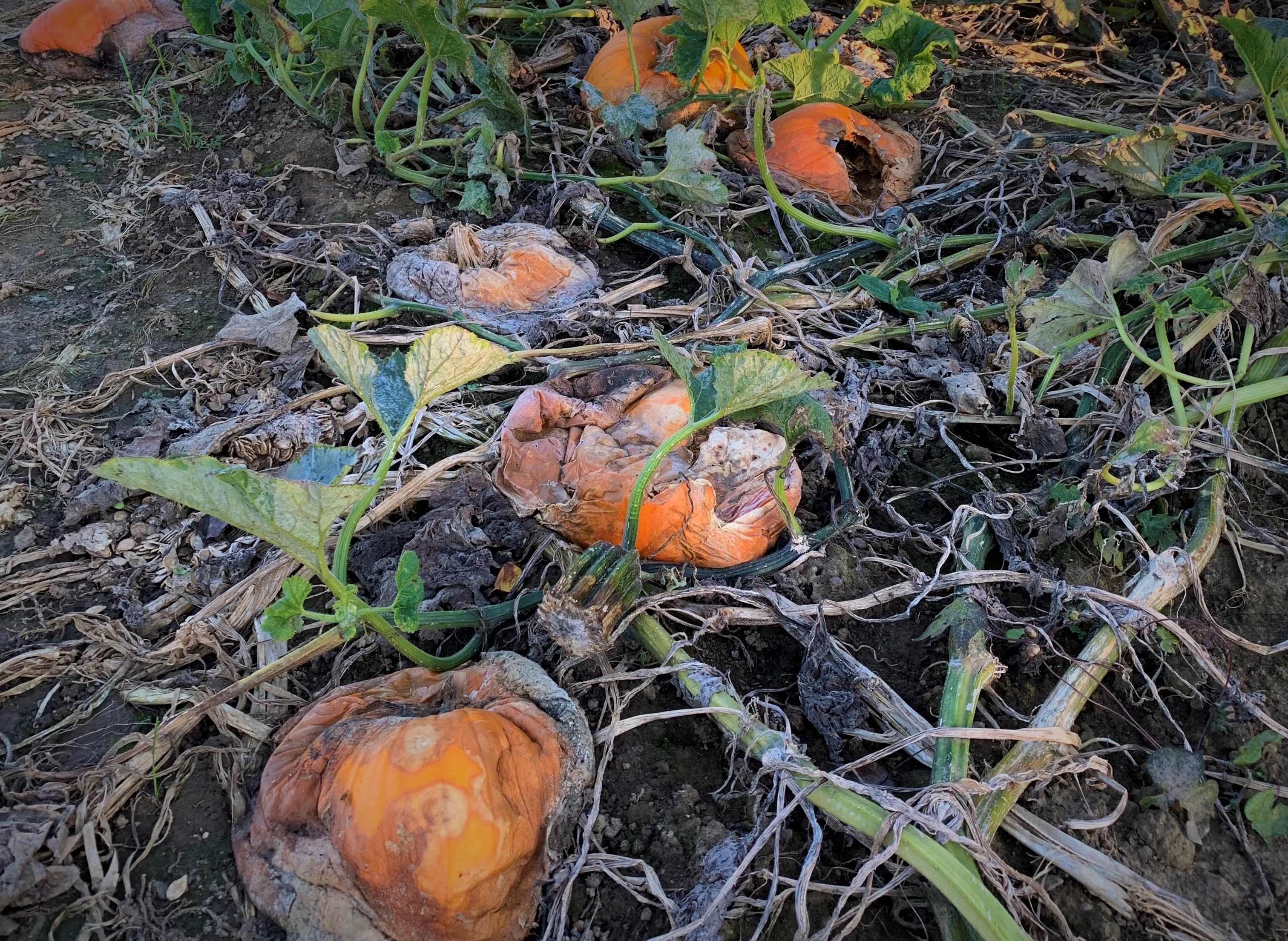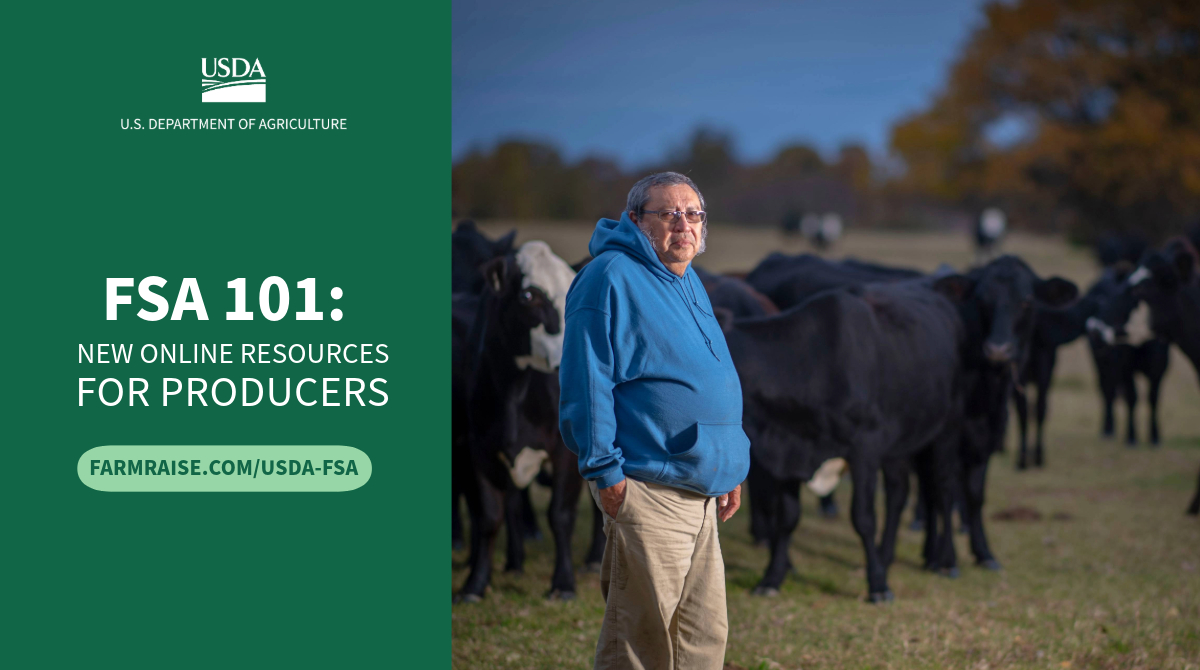About New Jersey FSA
The Farm Service Agency is a safety outlet for producers. It helps ensure:
- The well-being of American Agriculture, the environment, and the American People though efficient and equitable administration of farm commodity programs;
- Farm ownership, operating, and emergency loans;
- Conservation and environmental programs;
- Emergency and disaster assistance;
- Domestic and international food assistance and international export credit programs.
Our Goals are to:
- Stabilize Farm Income
- Help Farmers Conserve Land and Water Resources
- Provide Credit to New or Disadvantaged Farmers
- Help Farm Operations Recover From the Effects of Disaster
FSA has six regional county offices. Click here to find your office.
New and Important
- Loan Assistance Tool
- Loss Adjusters Needed
- Don't Risk Your USDA Benefits - Food Security Act
- Click Here for Selected April Loan Rates
- Crop Damager
- Disaster Designations
- About New Jersey Agriculture
- Approved New Jersey Double Cropping NEW
- State Committee
- Agriculture Mediation Program
- Program Deadlines, Click here for a copy of our Customer Calendar (Updated 3/3/23)
- 2024 New Jersey County Committee Meeting Schedules
USDA Partners with FarmRaise to Offer Educational Tools and Resources
FarmRaise, Inc. has created an online, educational hub -- called Farm Service Agency 101 – comprised of videos, and resources that enable cooperators and the agricultural producers they serve to learn about and access major FSA programs.
USDA Launches Loan Assistance Tool
Are you ready to apply for a farm loan?
- Am I eligible for a FSA Farm Loan?
- Which loans are right for me?
- Where can I get help completing the loan application forms?
The U.S. Department of Agriculture (USDA) launched an online tool to help farmers better navigate the farm loan application process. This uniform application process will help to ensure all farm loan applicants receive equal support and have a consistent customer experience with USDA’s Farm Service Agency (FSA) regardless of their individual circumstances.
Farmers can access the Loan Assistance Tool by visiting https://lat.fpac.usda.gov and clicking the Get Started button. From there follow the prompts to complete the Eligibility Self-Assessment to start the farm loan journey. The tool is built to run on modern browsers like Chrome, Edge, Firefox, or the Safari browser and is fully functional on mobile devices. It does not work in Internet Explorer.
To learn more about the Loan Assistance Tool and the upcoming ability to apply online watch the video below:
Farm Service Agency is Seeking Loss Adjusters
The Farm Service Agency is seeking to hire loss adjuster (LA) throughout the state. LAs are:
- required to have knowledge of field crops and specialty crops, as well as a thorough understanding and execution of crop adjusting guidelines and program provisions, as applicable to FSA programs. LA’s are self-employed; therefore, health and retirement benefits are not provided. LA’s are responsible for paying all taxes on earned income.
- responsible for obtaining equipment necessary to perform required inspection/appraisal duties. Some equipment such as cameras and GPS measuring devices may be available through the FSA county office.
- required to complete training
Click here for complete job description. For additional information please contact Aly Dyson, NJ FSA Farm Program Disaster Specialist, Alyson.Dyson@usda.gov.
Don't Risk Your USDA Benefits - Food Security Act
In order to maintain eligibility for most USDA programs, producers must comply with the Highly Erodible Land Conservation (HELC) and Wetland Conservation (WC) provisions, agreeing they will not:
- Produce an agricultural commodity on highly erodible land without an adequate conservation system;
- Plant an agricultural commodity on a converted wetland;
- Convert a wetland to make possible the production of an agricultural commodity.
The Natural Resources Conservation Service (NRCS) is responsible for providing program participants technical assistance and determinations to assist them in complying with the provisions.
We invite you to reach out to your local USDA Service Center if you have any questions.
Click here for more information.
| Please reach out your local FSA office if you or anyone you know has experienced crop or farm property damage as a result of recent weather events. This information is vital for emergency declarations which make additional assistance available to you and your peers. |  |
Farm Service Agency has programs to assist with fruit trees, berry bushes, ornamental, and vine losses as well as losses of livestock, honeybees, and farm raised fish. These programs are not insurance programs and do not require purchasing coverage prior to the weather event or disaster (excludes NAP). Click on the links below for information on some of our programs:
Crop Damage
- Livestock Indemnity Program (LIP)
- Emergency Livestock Assistance Program (ELAP) for
- Livestock
- Honeybees
- Farm-Raised Fish
- Tree Assistance Program (TAP)
- Non-Insured Crop Disaster Assistance Program (NAP)
Property Damage
- Emergency Loans
- Farm Storage Facility Loans (FSFL)
- Emergency Conservation Program (ECP)
- Emergency Forest Restoration Program (EFRP)
If you have crop coverage under the Non Insured Crop Disaster Assistance Program (NAP) and feel that the weather has affected your covered crop
please make sure you contact your local FSA office immediately (within 72 hours). If you would like to sign up for NAP contact your local FSA office for details.
Disaster Designations
Farmers in the following counties are eligible for Emergency Loans through the USDA Farm Service Agency (FSA)
- Secretarial Designation M4755 - New York
- For Severe Storm and Flooding beginning on 9/28/2023
- New Jersey contiguous counties: Bergen & Hudson
- Loan application deadline: 10/30/2024
- Secretarial Designation S5644 - New Jersey
- For frost and freeze beginning on 5/17/2023
- New Jersey primary counties: Morris, Sussex, Warren
- New Jersey contiguous counties: Essex, Hunterdon, Passaic, Somerset, Union
- Loan application deadline: 8/12/2024
- Presidential Designation M4723 - New York
- For Severe Storms and Flooding 7/09/2023 - 7/10/2023
- New Jersey contiguous counties Bergen, Passaic and Sussex
- Loan application deadline: 3/22/2024
Please contact your local County Office for more information or visit our Emergency Loan website at https://www.fsa.usda.gov/programs-and-services/farm-loan-programs/emergency-farm-loans/index or read the Disaster Designations Fact Sheet by clicking here.
About New Jersey Agriculture!
New Jersey, known as the Garden State, has a vast diversity of landscapes and is a unique combination of densely populated urban centers and open agricultural areas. For a small state, agriculture in New Jersey is quite significant with more than 100 crops being produced. Despite legislative and public pressures, high input costs, and the second highest per-acre market value of farmland in the nation, 16% of New Jersey land is dedicated to agriculture production and the ag industry contributes $987 million to the state’s economy.
The Garden State is 3rd in the nation for producing Cranberries, Peaches and Spinach; 4th in Bell Pepper production; 6th in Blueberries, Cucumbers, and Squash; and 7th in Tomatoes. Other major commodities are nursery, berries, equine and aquaculture.
Check out the video below to find out more about Morris Gbolo of World Crops Farms who take advantage of FSA Loans and Programs to help keep the garden in the Garden State.
Double-Cropping
Each year, state committees will review and approve or disapprove county committee recommended changes or additions to specific combinations of crops.
Double-cropping is approved when the two specific crops have the capability to be planted and carried to maturity for the intended use, as reported by the producer, on the same acreage within a crop year under normal growing conditions. The specific combination of crops recommended by the county committee must be approved by the state committee.
Double-cropping is approved in New Jersey on a county-by-county basis. Click here to see the 2024 Approved Double Cropping Combination list or contact your local FSA Office for a list of approved double-cropping combinations for your county.
A crop following a cover crop terminated according to termination guidelines is approved double cropping and these combinations do not have to be approved by the state committee.
Ag Mediation Program
The U.S. Department of Agriculture (USDA) Certified Mediation Program makes grants to state designated entities that provide alternative dispute resolution through mediation to agricultural producers, their creditors (as applicable), persons directly affected by the actions of the USDA, and any other persons involved in covered issues for which mediation services are provided by a Certified Mediation Program. In mediation, a trained, impartial mediator helps participants review and discuss their conflicts, identify options to resolve disputes and agree on solutions. Mediation helps to avoid expensive and time-consuming administrative appeals and/or litigation.
These grants are administered by the Farm Service Agency (FSA). Cases that may be mediated include, but are not limited to, agricultural loans, whether made by USDA or commercial lenders, and disputes involving USDA actions on farm and conservation programs, wetland determinations, rural water loan programs, grazing on national forest system lands, pesticides, rural housing and business loans, and crop insurance.
In New Jersey the USDA FSA has awarded this grant the State Agricultural Development Committee (SADC), who administers the Agriculture Mediation Program in New Jersey.
How do you request mediation?
Complete a mediation request form, available at www.nj.gov/agriculture/sadc/agmediation/request, and return it to the Agricultural Mediation Program. Once each party agrees to participate, the Program assigns a mediator and schedules a mediation session at a time and place convenient for all the parties. For more information Visit www.nj.gov/agriculture/sadc/agmediation, or call the SADC at (609) 984-2504.
Additional Resources
National Ag Mediation Fact Sheet
New Jersey Ag Mediation Fact Sheet
New Jersey Ag Mediation Handbook
Your New Jersey State FSA Committee
- Committee Chair Alfred Murray - Audubon
- Erick Doyle - Flemington
- Stephen Lee IV - Chatsworth
- Rajesh Sinha - Sandyston
- Anna Trapani - Clarksburg



